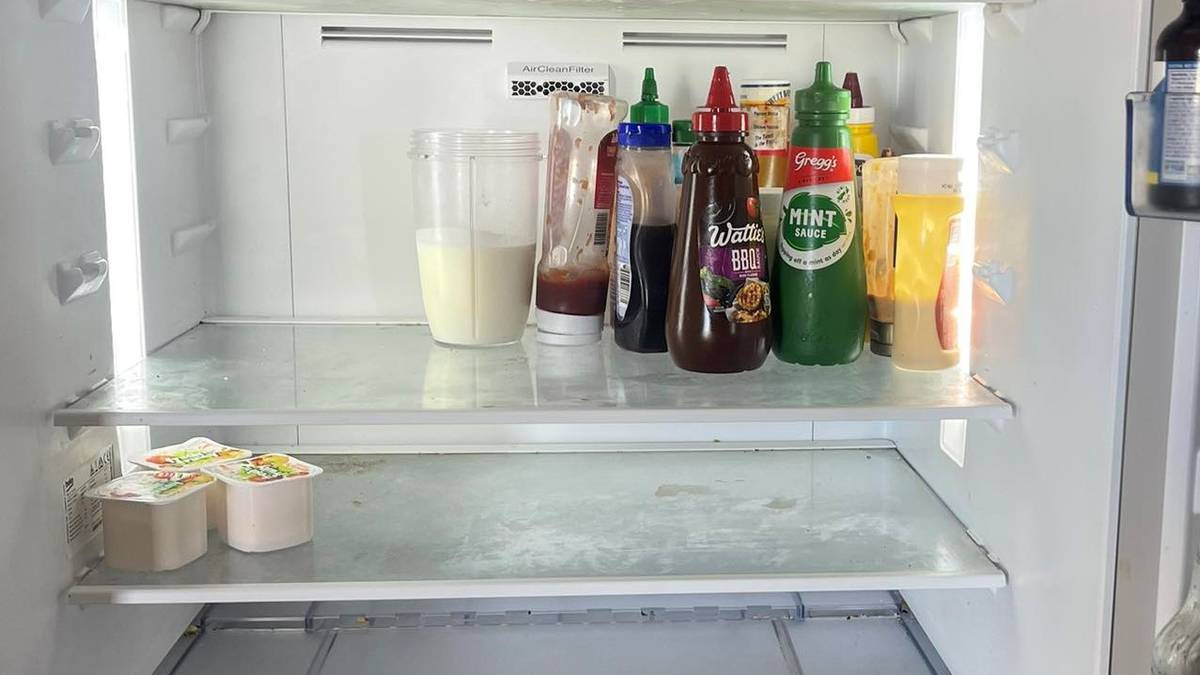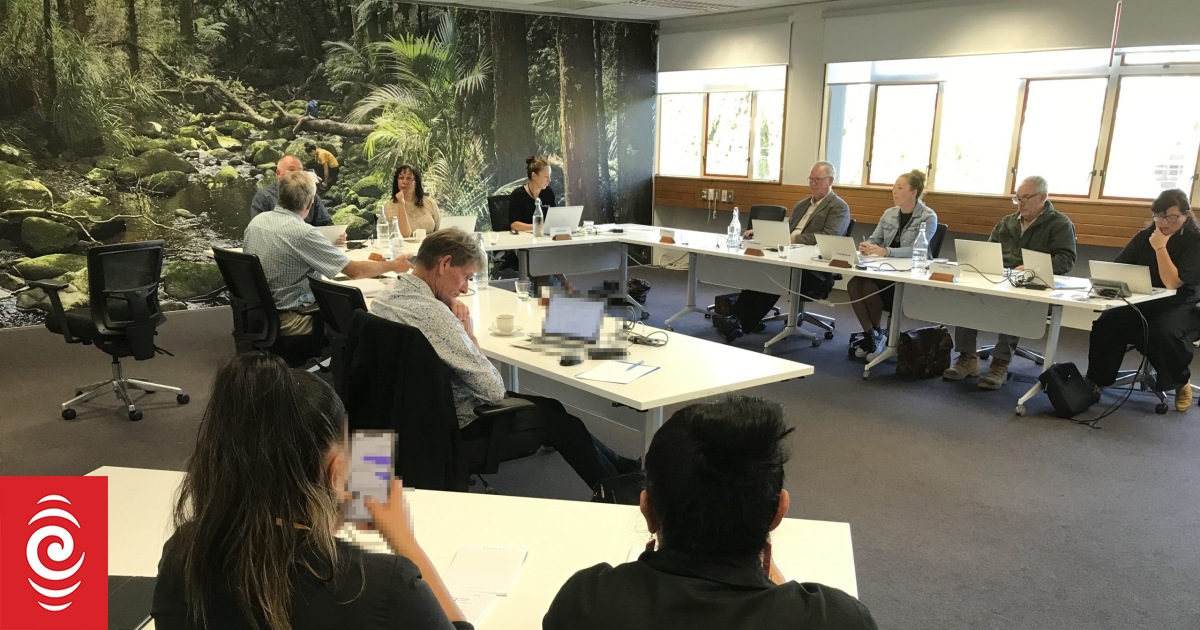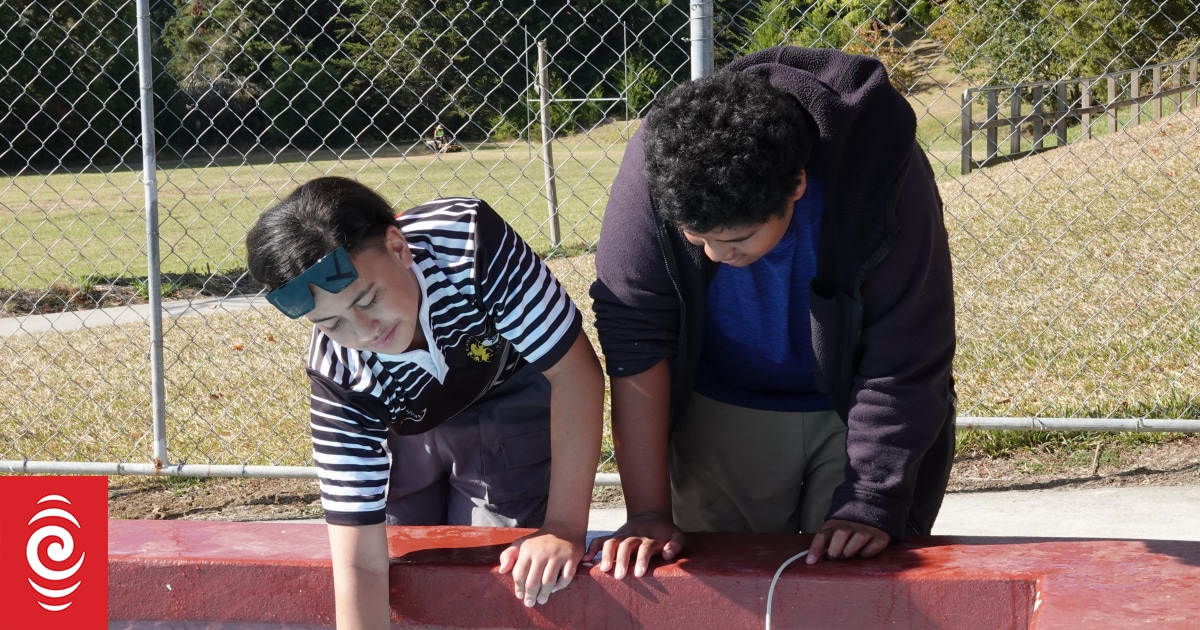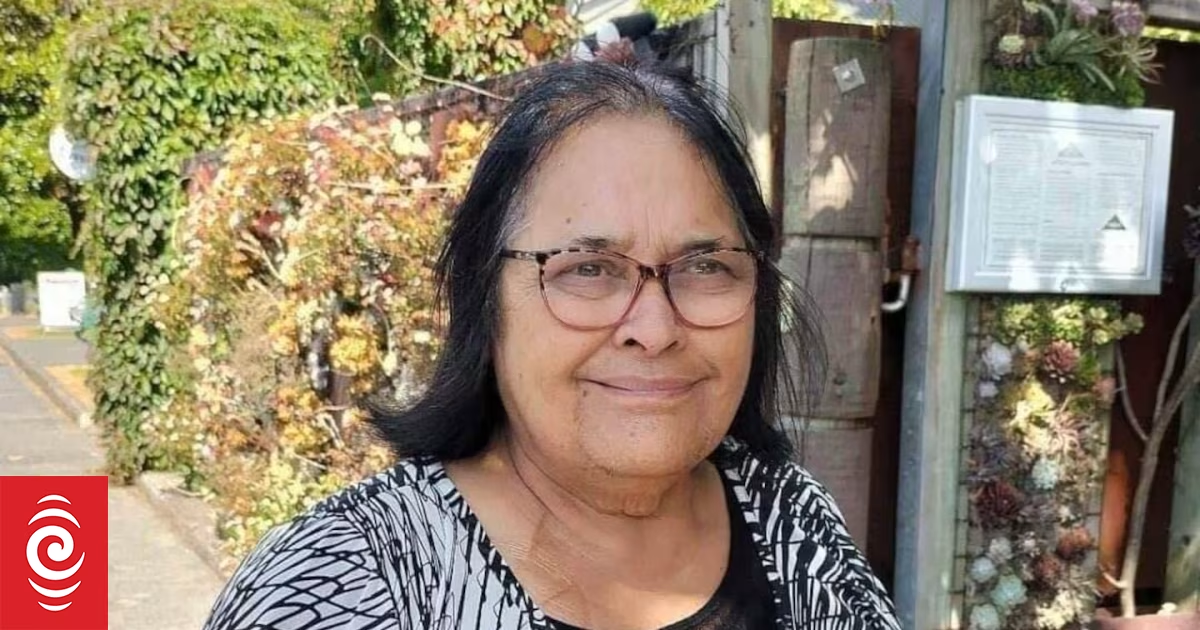Shantelle Puru shared a photo of her fridge. ‘There’s some sauces, but it’s bare,” she says.
When Solly Whare dropped $50 in the parking lot outside Pak’nSave in Kaitāia, it sent the whānau of six into a financial tailspin that wasn’t unusual and was simply a part of the rhythm of life.
His partner, Shantelle Puru, 35, knew exactly what the impact would be. That $50 was their petrol money. If the loss had been discovered before their $100 shop was done, they would have eaten less and put petrol in the car.
As it was, the shopping was done and paid for. Their cars were already near empty, with the gas lights on. And he was due back at work that afternoon – one of two jobs he works for a total of 60 hours a week.
He got home, dropped off the shopping and headed back out with little more than fumes in the tank.
Advertisement
“I was a bit scared he wasn’t going to make it,” she says.
The story Puru tells is generous in that it’s honest, open and likely familiar to many whānau. In telling it, she wasn’t looking for handouts or sympathy, but sharing a story others will recognise of trying to make ends meet as the cost of living spirals upwards.
In fact, when she posted to social media asking if anyone had picked up the $50, people generously offered to pay for shopping or gift her whānau cash.
She declined.
Advertisement
“I didn’t want other people’s money. I wanted my money. Because I know we can do it and there’s people way worse off than me that could do with that.”
/cloudfront-ap-southeast-2.images.arcpublishing.com/nzme/WM5FDPSRFVEWXHWFEU7VX57EXY.jpg)
Puru describes that privileged position – a big house they rent, two cars, hot meals and Wi-Fi – and acknowledges there are many in the Far North who do not have those things.
“I keep reminding myself – we’re better off. We have always made it work. We have had weeks where we’ve just had $20 for food, and we make it work.”
They both work – him as a chef and her doing online product endorsement from home in Kaingaroa, which allows her to be there for their new baby and three other children.
If they can, the food budget for the week is around $200.
“We budget pretty well. We make everything stretch, really.”
In order, they pay bills first, petrol second and food last. The bills keep a roof over their heads and petrol gets Whare to work. With jobs on split shifts and children to run around, petrol costs add up quickly.
“We’ve never been rich. We’ve never had spare money.”
Shopping focuses on bulk purchases. There’s a lot of pasta and not so much fruit or vegetables, particularly with soaring prices. Eggs have doubled in cost, making a regular staple feel somewhat out of reach.
When it comes to cooking, “we’ve never had much money”. And she was a mum from the age of 17, “so I had to learn to cook on a budget”.
Advertisement
“I can make anything out of anything.”
“I’ve found a million ways to make nice food for under $20.”
Ask for an example and she’s ready with a favourite. Meatball subs are an economical option when French sticks, on special, go for $1 a piece and can be cut into four servings to go with 99-cent pasta sauce and some mince with a bit of cheese grated on top.
Fettuccine is a good one, and pasta generally. For 99c, a packet of bulk pasta could feed the household. The menu tends to lean towards curries, soup or stew, where base ingredients can be stretched out, and meat, if there is any, can go a lot further.
Puru reckons they eat meat about three times a week. There’s those occasional cheap pork cuts – or sometimes specials – that might provide a roast dinner.
“That’s our treat dinner.”
Advertisement
/cloudfront-ap-southeast-2.images.arcpublishing.com/nzme/Q5HT4ZJDOZDHNB6FVEWJMNEHJQ.jpg)
And, as always happens, things go wrong and unexpected bills crop up. There are days when she has less so the kids can have more.
“That’s what you do as a mum. I don’t let my kids know they can’t eat – I’m never going to let them think we are in that position.”
Their second-hand fridge needed replacing so they bought a new one on finance. The lesson learned from the old fridge was that the unreliability of buying second-hand didn’t add up, with a higher power bill and occasional malfunctions that led to ruined food.
As Puru said at the outset, she appreciates there are many others doing it hard, and harder. Still, the pressure on their incoming money – which includes $360 a week via Working for Families – is on her mind “all day every day”.
“When I go to bed, late at night, I’m constantly going over and re-going over what we have. It’s why I get no sleep.”
Her work has some benefits, with children’s toys, and clothing and nappies among the items she promotes online, and she can keep them after doing so.
Advertisement
That also helps when it gets tight.
“When we’re short, we find things in the house to sell. If it’s worth money and we need money, we sell it off.”
Asked about looking ahead, she says: “I can’t afford to, really.” Last year, there was a plan to go on holiday. The destination in mind was Auckland, with the hope they could take the kids to Kelly Tarlton’s and experience the delights they remembered as children.
A couple hundred dollars was saved, “then bills came up and the car breaks, and we have to dip into that and now we have no holiday fund”.
“You don’t want to plan for it anymore or get the kids’ hopes up. Just a trip to Auckland is off the table.”
Ask about this year’s election and whether it’ll mean a light might shine at the end of the tunnel and Puru scoffs.
Advertisement
“It’s just another headache I don’t need and don’t understand.” She does, though, believe “the minimum wage needs to reflect the actual cost of living”.
/cloudfront-ap-southeast-2.images.arcpublishing.com/nzme/23YTWANEJNB6JEXWO3M7DSDOC4.jpg)
Kaitāia Family Budgeting Service senior financial mentor Tania Sneddon said hardship in the Far North existed before Covid-19 and the subsequent cost of living crisis.
She said the service had helped with an increasing number of KiwiSaver hardship applications along with assisting whānau with budgeting advice.
Sneddon said assisting people with organising their finances did help, although it was often the case that those on benefits had a better safety net through being able to seek assistance from Work and Income.
“You can fill all the forms out in the world and still come under their threshold.”
It was a difficult space, with some finding it difficult to seek help because of pride, while others were looking for answers beyond what they could be doing themselves.
Advertisement
“I always let my clients know there is no magic wand – and you always wish you had one. It is about going over that budget again and again.”
- Kaitāia Family Budgeting Service operates out of Kaitāia Community House. It is open Monday to Thursday from 9am to 4pm and on Fridays from 9am to 3pm. Those seeking assistance need to provide proof of income and expenses. The service is confidential.




